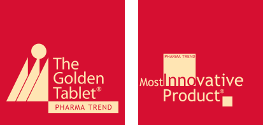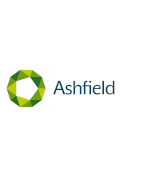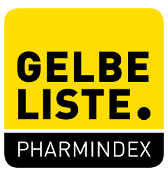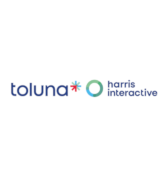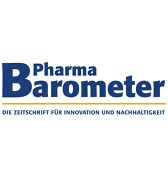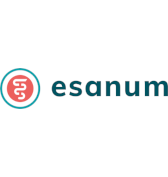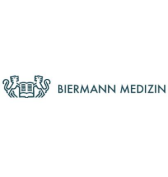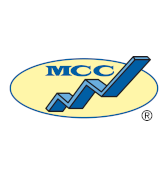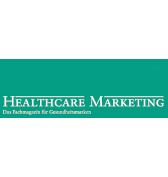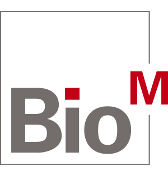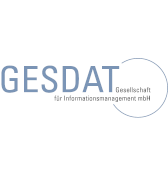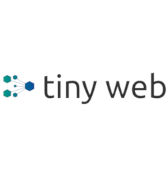- Analyses from the two Phase 3 RITA trials evaluate both the suitability of age-based dosing as well as the tolerability of treatment with follitropin delta in women undergoing controlled ovarian stimulation.
- Ferring’s long-standing commitment to helping people build families is illustrated through the company’s investment in developing innovative potential treatment options that advance the science of reproductive medicine.
PARSIPPANY, N.J.–(BUSINESS WIRE)–Ferring Pharmaceuticals announced today positive, new data for follitropin delta (FE 999049), an investigational-stage human recombinant follicle stimulating hormone (rFSH) being studied for the development of multiple follicles and pregnancy in ovulatory women undergoing fresh or frozen embryo transfer as part of an assisted reproductive technology (ART) cycle. These data were presented at the Annual Meeting of the American Society for Reproductive Medicine (ASRM) (October 25-29; San Antonio, Texas).
The analyses are based on the full data set from the RITA (Recombinant FSH Investigation in the Treatment of Infertility with Assisted Reproductive Technology) clinical trials, the first randomized, double-blind, placebo-controlled registrational trials (n=1,165) of follitropin delta in women undergoing controlled ovarian stimulation for ART in the United States. The primary endpoint was cumulative ongoing pregnancy rate (≥1 intrauterine viable fetus at 8 to 9 weeks after transfer, confirmed by abdominal or transvaginal ultrasound) after fresh or cryopreserved cycles initiated within 12 months of start of ovarian stimulation. The full findings from both the RITA-1 and RITA-2 trials were recently published in Fertility & Sterility.1
“With one in six people worldwide impacted by infertility, there is a critical need to develop new and novel treatment approaches that help physicians customize ART protocols for their patients,” said Michael D. Scheiber, M.D., M.P.H., reproductive endocrinologist and infertility specialist, Institute for Reproductive Health, Cincinnati, Ohio. “The RITA trials are unique in studying cumulative ongoing pregnancy rates and live birth rates as primary and secondary endpoints to help capture the total reproductive potential of a single gonadotropin stimulation cycle for IVF. The clinical profile, combined with the novel pharmaceutical aspects of follitropin delta, help possibly to establish an evolved treatment paradigm for patients and provides strong evidence for its use, if approved, for controlled ovarian stimulation in clinical practice in the U.S.”
Follitropin delta met its primary endpoint in both trials. The cumulative ongoing pregnancy rate with follitropin delta after 12 study months was 64.0% (p<0.001) [95% CI: 56.9% to 68.1%] in RITA-1 and 43.9% (p<0.001) [95% CI: 37.0% to 48.2%] in RITA-2; no pregnancies occurred in the placebo group. The pooled incidence of adverse drug reactions with follitropin delta was 12.0%, compared with 3.7% for placebo. The most frequently reported adverse drug reactions were pelvic discomfort (4.7%), ovarian hyperstimulation syndrome (3.0%), pelvic pain (1.5%), nausea (1.5%), headache (1.4%), and fatigue (1.2%). Most reactions were mild, with only 0.1% rates as moderate or severe with either follitropin delta or placebo.
One analysis presented at ASRM demonstrated the feasibility of age-based microgram (μg) dosing with follitropin delta. Women in the follitropin delta group (n=1,058) received a fixed starting dose of either 12 μg/d (n=525; aged <35 years, RITA-1) or 15 μg/d (n=533; aged ≥35 years, RITA-2) for the first four stimulation days. Based on responses and at the judgment of investigators, dosing could be increased or decreased in 3 μg dose adjustments, with a minimum and maximum daily dose of 6 μg and 24 μg, respectively. In the RITA-1 trial, 55.8% of patients and 50.7% of patients in RITA-2 did not require follitropin delta dose adjustments during ovarian stimulation. The RITA trials confirmed the suitability of these two starting doses based on age.2
The second analysis presented characterized the overall tolerability of follitropin delta. Study participants assessed injection site reactions immediately, 30 minutes and 24 hours after injection. The frequency of injection site reactions after administration across all timepoints was generally low (4.2% across RITA-1 and RITA-2) and comparable to placebo (4.9%). The most common injection site reactions were redness, bruising and pain – with most assessing site reactions as mild. These findings demonstrate high tolerability using a sub-cutaneous injection via a pre-filled pen.3
“Ferring is deeply committed to advancing the science of reproductive medicine to help more people, who are challenged in their family building journey, become parents,” said Olga Tarasova, M.D., MBA, U.S. Chief Medical Officer, Ferring Pharmaceuticals. “We are thrilled to share these important new data analyses that support the potential benefits of follitropin delta. With the growing demand for ART services, Ferring is focused on helping to address this treatment need in fertility care.”
Follitropin delta (FE 999049) is approved under the brand name Rekovelle® in the European Union, Canada, Australia, Switzerland, Japan, and other global markets. It is not currently approved in the United States.
About Ferring Pharmaceuticals
Ferring Pharmaceuticals is a privately-owned, specialty biopharmaceutical group committed to building families and helping people live better lives. In the United States, Ferring is a leader in reproductive medicine, and in areas of gastroenterology and orthopaedics. We are at the forefront of innovation in microbiome-based therapeutics and uro-oncology intravesical gene therapy. The company was founded in 1950 and is headquartered in Saint-Prex, Switzerland. Ferring employs more than 7,000 people worldwide and markets its medicines in over 100 countries. Ferring USA is based in Parsippany, New Jersey, and employs more than 900 employees.
For more information, please visit www.ferringusa.com, call 1-888-FERRING (1-888-337-7464), or connect with us on LinkedIn, and X.
About Follitropin Delta (FE 999049)
Follitropin delta (FE 999049) is an investigational-stage human recombinant follicle stimulating hormone (rFSH) being studied for the development of multiple follicles and pregnancy in ovulatory women undergoing fresh or frozen embryo transfer as part of an assisted reproductive technology (ART) cycle.
References:
- Scheiber M, Doody KJ, Foster ED, Grover SA, et al. Ovarian stimulation with follitropin delta is safe and effective: results from the RITA randomized, double-blind, placebo-controlled trials. Fertil Steril. 10.1016/j.fertnstert.2025.07.032. Available at: https://www.fertstert.org/article/S0015-0282(25)00605-3/fulltext.
- Hirshfeld-Cytron J, Uhler ML, Grover SA, Foster, ED, et al. American Society for Reproductive Medicine Annual Meeting Abstract. Evaluation of FE 999049 Dosage Suitability in United States (US) Women Undergoing Controlled Ovarian Stimulation, a RITA Trial Analysis (P-47). Presented on October 27, 2025. Available at: https://asrm.confex.com/asrm/2025/meetingapp.cgi/Paper/28093.
- Schnell VL, Brenner A, Grover SA, Foster ED, et al. American Society for Reproductive Medicine Annual Meeting Abstract. Characterization of FE 999049 Tolerability in United States (US) Women Undergoing Controlled Ovarian Stimulation, a RITA Trial Analysis (P-77) Available at: https://asrm.confex.com/asrm/2025/meetingapp.cgi/Paper/28253.
Contacts
Lisa Perdomo
Director, Brand Communications
(862) 286-5769 (direct)
(862) 341-9820 (mobile)
lisa.perdomo@ferring.com
